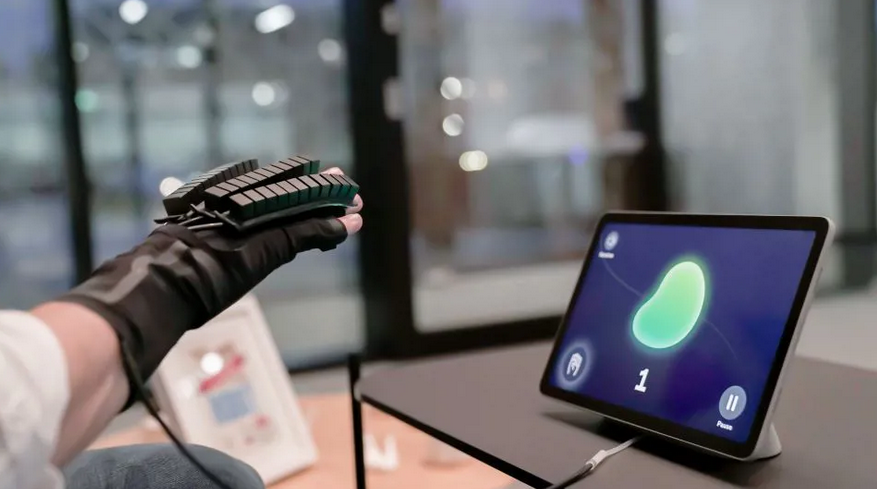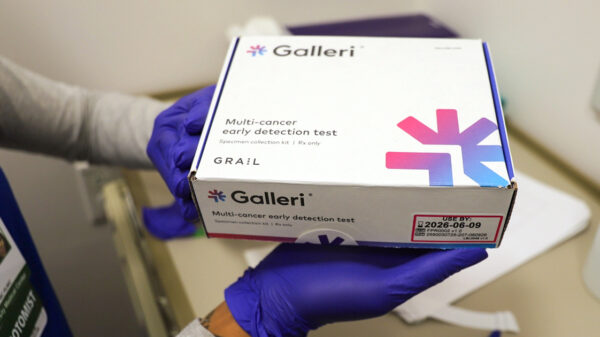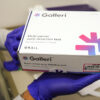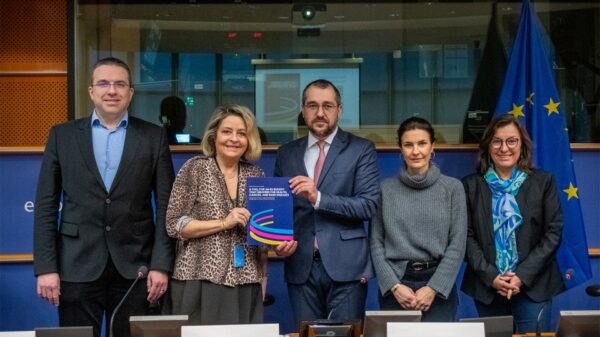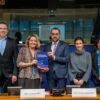A Scotland-based medical technology company is looking to give stroke patients a new lease on life.
The startup, Bioliberty, which is based at the National Robotarium at Heroit Watt University, received £435,000 in funding from Innovate UK for a ‘robotic glove’ that would allow stroke patients to open and close their hands, which is an action that can be limited after a stroke.
Collaborating with physiotherapists, occupational therapists and clinicians, the company developed a glove with built-in sensors that enable it to adjust resistance levels, customizing rehabilitation exercises for the user.
The funding will support the development of the product’s machine learning and data collection components.
Bioliberty occupies a space at the National Robotarium, a cutting-edge facility that collaborates with global partners to address industry challenges using robotics and AI. Bioliberty takes advantage of the National Robotarium’s incubation facilities, advanced laboratories and engineering know-how.
Congratulations to #HubMember @bio_liberty for securing £2.2m in investment. The Edinburgh-based #startup is developing a robotic glove to help people rehabilitate from a stroke, through the opening and closing their hands for upper limb rehabilitation: https://t.co/OW2jZ1yPm4
— Enterprise Hub (@RAEng_Hub) April 12, 2023
Read more: Serve Robotics goes public after $30M investment from Uber and NVIDIA
Read more: Sanctuary AI rolls out the first general purpose robot
Stroke is the leading cause of disability worldwide
The National Robotarium is part of the Data-Driven Innovation initiative, which is jointly supported by £21 million grant from the UK Government and £1.4 million from the Scottish Government. The initiative’s ultimate goal is to turn Edinburgh into the data capital of Europe, and is part of a larger £1.3 billion Edinburgh and South-East Scotland City Region deal.
“Bioliberty is on the verge of a revolutionary leap in rehabilitation technology. Our upcoming trials for our soft robotic glove are set to ignite the United States, with top rehab clinics eagerly in discussions,” said Conan Bradley, co-founder of Bioliberty.
“With this newfound funding, we’re poised to accelerate trials and expedite our market launch. But we’re not stopping at the U.S.; the UK beckons, with a significant demand for innovative rehabilitation solutions amidst the latest NICE guidelines.”
According to the World Stroke Organization, stroke has become the leading cause of disability worldwide and the second leading cause of death. The Global Stroke Factsheet, published in 2022, discloses that the lifetime risk of experiencing a stroke has risen by 50 per cent over the past 17 years, and now an estimated 1 in 4 people is projected to have a stroke in their lifetime.
The device joins several other market-bound products originating from Scotland’s National Robotarium, including a device designed to train surgeons in keyhole surgery using artificial intelligence (AI), as well as a telerobot equipped with artificial skin to assist nursing staff with their duties.
.

